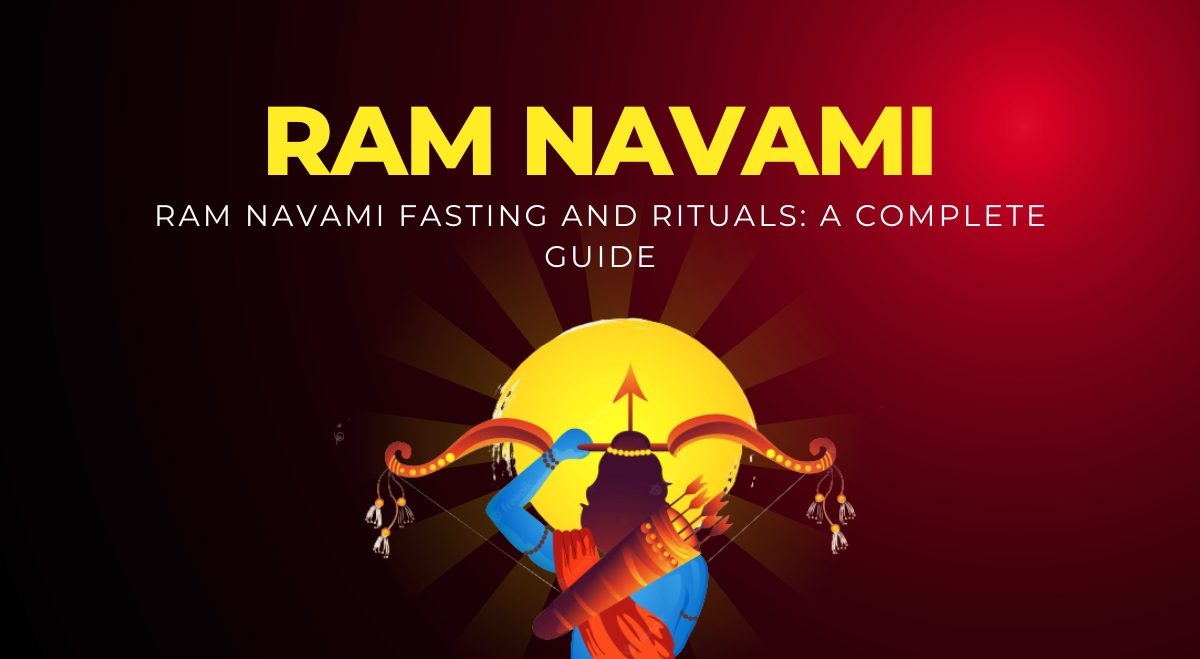Ram Navami, the joyous celebration of Lord Rama’s birth, is a time of deep devotion and spiritual practices for Hindus worldwide. One of the most significant aspects of this festival is fasting, which holds a special place in the hearts of devotees. Let’s explore the meaning, methods, and rituals associated with Ram Navami fasting, and learn how to perform a meaningful puja at home.
Ram Navami fasting is a spiritual practice observed on the ninth day of the bright half of the Chaitra month in the Hindu calendar. This fast is undertaken to express devotion to Lord Rama and to purify one’s body and mind. Devotees believe that fasting on this day brings blessings, spiritual growth, and a closer connection to the divine.
The fast typically begins at sunrise and ends the next day after performing puja and offering prayers to Lord Rama. Some devotees observe a complete fast, abstaining from all food and water, while others may opt for a partial fast, consuming only fruits and milk.
Fasting on Ram Navami is believed to offer several spiritual and physical benefits:
- Spiritual Purification: The act of fasting is seen as a way to cleanse the mind and soul, making one more receptive to divine grace.
- Increased Focus: By abstaining from food, devotees can better concentrate on prayers and meditation, deepening their spiritual practice.
- Self-Discipline: Fasting helps cultivate self-control and willpower, essential qualities in spiritual growth.
- Physical Detoxification: A day of fasting can help cleanse the body of toxins and give the digestive system a rest.
- Alignment with Divine Energy: Devotees believe that fasting aligns them with the positive energies associated with Lord Rama’s birth.
Observing a Ram Navami fast can be a deeply personal and spiritually enriching experience. Here are some guidelines to help you fast effectively:
- Set Your Intention: Begin your fast with a clear intention to honor Lord Rama and seek his blessings.
- Choose Your Fast Type: Decide whether you’ll observe a complete fast or a partial one. If you have health concerns, consult a doctor before fasting.
- Wake Up Early: Rise before sunrise and take a bath to purify yourself before starting the fast.
- Stay Hydrated: If you’re doing a partial fast, drink plenty of water throughout the day.
- Engage in Spiritual Activities: Spend time in prayer, meditation, or reading the Ramayana.
- Avoid Negative Thoughts: Try to maintain a positive mindset throughout the day.
- Break the Fast Mindfully: End your fast after performing evening prayers, preferably with light, sattvic foods.
Performing a Ram Navami puja at home is a beautiful way to celebrate the festival and seek Lord Rama’s blessings. Here’s a step-by-step guide to conducting a simple yet meaningful puja:
- Prepare the Puja Area: Clean and decorate a space in your home for the puja. Place an idol or picture of Lord Rama, along with Sita, Lakshmana, and Hanuman.
- Gather Puja Materials: You’ll need flowers, incense, a diya (oil lamp), fruits, sweets, and water for offerings.
- Begin with Meditation: Sit quietly for a few minutes, focusing your mind on Lord Rama.
- Invoke Lord Rama: Light the diya and incense, and chant “Om Sri Ramaya Namah” to invoke Lord Rama’s presence.
- Offer Flowers: Present flowers to the deity while reciting the mantra “Om Ramaya Namah.”
- Perform Aarti: Light a camphor lamp and move it in a clockwise direction in front of the deity while singing a Ram aarti.
- Offer Prasad: Present fruits and sweets as an offering to Lord Rama.
- Recite Prayers: Chant the Ram Raksha Stotra or read passages from the Ramayana.
- Conclude with Gratitude: End the puja by expressing gratitude and distributing prasad to family members.
Observing Ram Navami fasting comes with certain guidelines to ensure a spiritually fulfilling experience:
Do’s:
- Maintain a positive and devotional mindset throughout the day.
- Engage in prayer, meditation, and reading of sacred texts.
- If observing a partial fast, consume only fruits, milk, and water.
- Participate in bhajans or kirtans dedicated to Lord Rama.
- Practice charity and kindness on this day.
Don’ts:
- Avoid consuming non-vegetarian food, even if not fasting.
- Refrain from negative thoughts or speech.
- Don’t overeat when breaking the fast.
- Avoid excessive physical exertion during the fast.
- Don’t engage in arguments or conflicts on this auspicious day.
While traditional fasting practices remain important, many devotees are finding ways to adapt Ram Navami observances to modern lifestyles:
- Virtual Pujas: For those unable to visit temples, many organizations offer online puja services.
- Healthy Fasting Options: Nutritionists now suggest balanced, nutrient-rich foods for those observing partial fasts.
- Mindfulness Apps: Some devotees use meditation apps to enhance their spiritual practice during the fast.
- Community Engagement: Social media platforms allow devotees to share their fasting experiences and connect with others.
- Eco-Friendly Celebrations: Many are opting for sustainable puja materials and avoiding single-use plastics in their offerings.
Fasting on Ram Navami is more than just abstaining from food; it’s a profound spiritual practice that connects devotees with the divine qualities embodied by Lord Rama. Through fasting and rituals, we remind ourselves of the values of righteousness, compassion, and devotion that Lord Rama exemplified.
As you observe the Ram Navami fast and perform the puja, remember that the true essence lies in purifying your thoughts and actions. Let this day be a reminder to embody the noble qualities of Lord Rama in your daily life, spreading love, kindness, and dharma in the world around you.
Whether you’re a seasoned practitioner or observing Ram Navami for the first time, approach the fast and rituals with sincerity and an open heart. May the blessings of Lord Rama fill your life with joy, peace, and spiritual growth.

